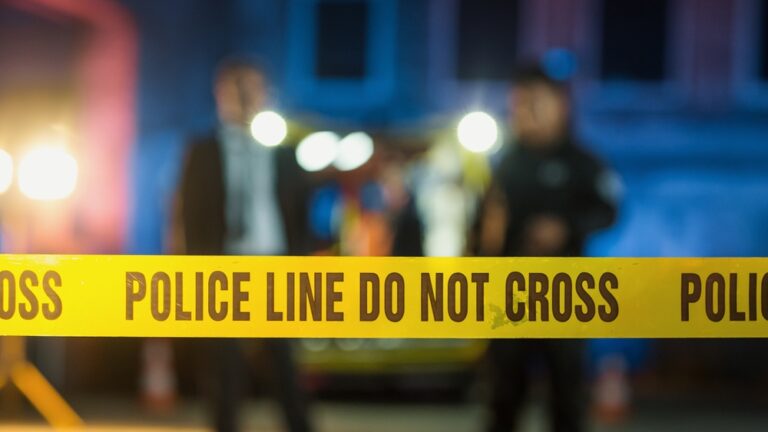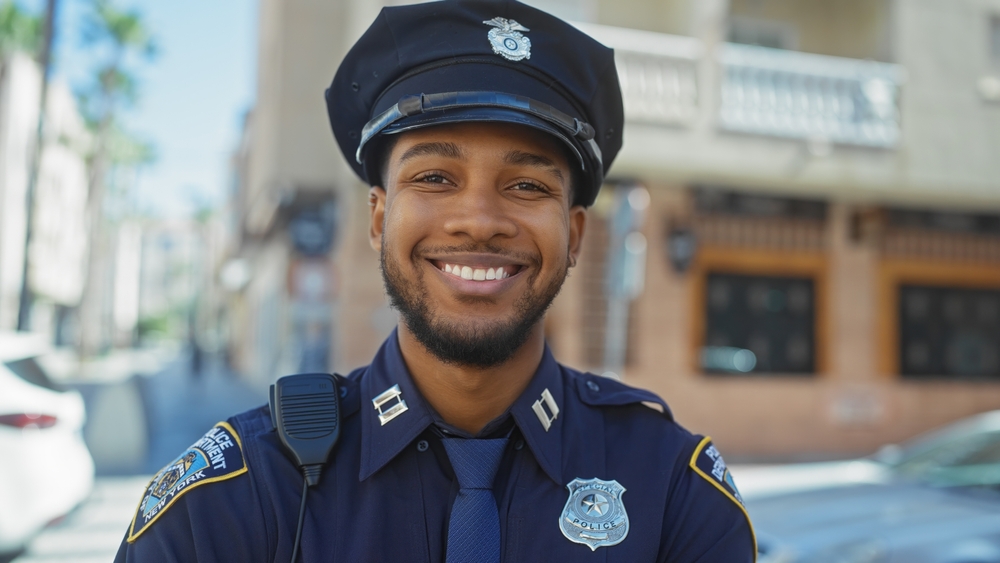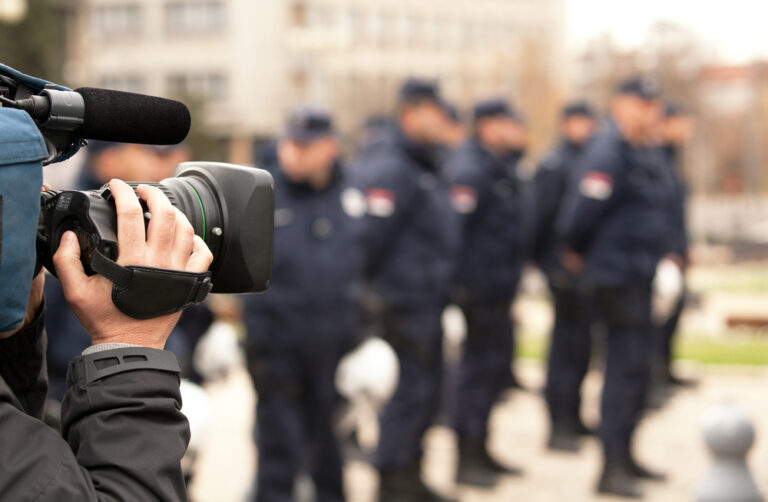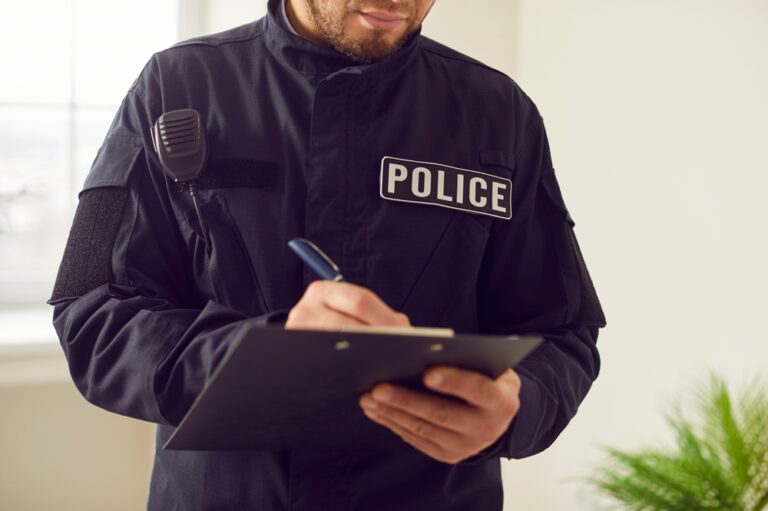
Police Tape 101: Everything You Need to Know
Police tape, commonly known as crime scene tape, is an important tool used by law enforcement to secure…

The police serve a vital role in building and sustaining safe communities. Naturally, police officers want people to trust them, both as individuals and collectively. Increasing public trust in the police is critical for us to do a good job.
Few things are as rewarding as having someone come to the police station and specifically ask for you. It shows that you have earned that person’s trust and confidence.
However, there often seems to be a lack of public confidence in law enforcement. Part of the reason for this is that civilians rarely understand why police officers respond to situations the way they do. This lack of transparency diminishes public trust and confidence in the officers they see in their communities.
This is particularly true if an individual police officer mishandles a situation or makes poor choices that reflect badly on the rest of the force.
Rather than focusing on negative examples, I’d like to offer guidance to help you foster trust within your community.
Below, you’ll see what YOU can do to increase public faith in the police. When individual officers begin building confidence with their neighbors, societal trust in police will surely follow.
Yes, that means everyone! Be polite, act professionally, and answer questions. Do not use unnecessary force. However, you are always entitled to “lay down the law” if/when the line is crossed.
If you are confident with your role in relation to the law and your fellow constituents, you will always be able to explain what you are doing and why. This will foster transparency and trust, as people will better understand your obligation to enforce certain rules and guidelines.
This is important! All too often folks are not informed as to why the police stopped them on the street to ask questions. Or why they were pulled over while driving. In these circumstances, it’s important to make sure that you are clearly explaining the reasons for your actions so that the person you have stopped is on the same page. Use discretion when offering this explanation.
In many cases it is enough to talk to people and provide them guidance. For example, if there is a verbal altercation at a bar, it’s not always necessary to use physical force to gain control of the situation.
Often, just being present and using verbal communication techniques is sufficient. If you break into a verbal quarrel and immediately handcuff everyone without trying to defuse the situation, this may lead people to think that you are abusing your power as a police officer. Always consider the level of power needed to resolve the situation.
You can also read our article about When to Use Batons, Pepper Spray and Taser.
Many things are illegal but not necessarily serious. For example, you do not have to write a ticket for every person who disobeys a traffic sign. Always consider the danger posed by the offense. There are clearly offenses that you cannot let slide, particularly ones that threaten harm to people or property.
Note: If you exercise discretion, you must also remember that people talk. Know that if you treat one incident or individual differently than you treat others, you could be held accountable to answer for it.
This is much like being polite and showing respect. It is important to be friendly and relatable as it helps “break the ice” with community members. Having a sense of humor, telling self-deprecating jokes from time to time, or playing basketball with kids in the neighborhood are all great ways to build rapport.
Having citizens with you on a police ride-along is a great way to show your (and the police force’s) best side.
It’s also okay to admit your own mistakes from time to time. It’s important that people see you as a real person in addition to their perception of you as an authority figure.
It is not necessary to be tough, hostile, or respond to people in a rude or condescending manner. And remember, being a police officer doesn’t necessarily make you a better person. How you treat others is a direct reflection of your moral character.
Humor is an excellent way to build rapport and defuse difficult situations. If you crack a few jokes and make folks laugh from time to time, they will see you as another human being and not a machine. Of course, this requires that you read the room and recognize the right moment for a lighthearted joke. If ever in doubt, avoid the potential calamity of a joke gone wrong.
When communicating with others, they might sometimes be “difficult” or “challenging.” This applies not only to criminals but to ordinary people as well.
You will often get questions such as:
“If I do ______ … then what are you going to do about it?”
Make sure you remain confident in yourself and your job so that you can answer these types of questions properly. Keep calm and answer appropriately, asserting your boundaries and the law.
In general, the respect that individuals have for a person increases with age. This also applies to police officers. Growing older will grant you the wisdom and experience that enables more peace of mind as you serve – and people will pick up on this.
You can’t know everything about everything! It’s better to be honest and admit that you don’t know the answer to a question or concern than be caught red-handed in a lie.
People often expect police officers to know everything about weapons, traffic rules, hunting regulations, driver’s licenses, environmental laws, etc. By admitting when you don’t know the answer and directing folks to the proper source, you are showing people that you can be trusted.
There are many ways to convey a message. Let’s consider a situation in which you are trying to break up a crowd around a crime scene. Compare these three communication styles:
Question:
“Can you please leave the area? The police need to work in peace. “
“The police need to work in peace, can you please go?”
Guidance:
“You must leave the area to avoid being cited for preventing police work.”
“To avoid being apprehended, you should leave the area. The police need to work in peace! ”
Order:
“Leave the area, otherwise you will be arrested!”
As you can see, there is a big difference between these methods. For most folks, simply being asked to clear the area is sufficient. For others, demands or a physical arrest may be necessary. It’s always better to ask questions first when possible.
Effective verbal communication skills is one of the most important qualities a police officer must possess. There are thousands of resources available to learn about techniques for verbal communication and conflict de-escalation. Actively researching, reading, studying, and holding critical conversations around these subjects is key to building trust.
People generally appreciate it when officers talk to them on ordinary days when nothing is happening. It’s important to build rapport and connection every day.
You can talk about anything and everything. Give answers to questions people may have. We get a lot of questions we can’t answer – some about things that are entirely outside of our job descriptions.
You obviously don’t know why the water pressure is bad or why there are so many power outages (yes, people ask police officers about this). But you might know where they can direct their question. If folks ask, try to answer or at least point them in the right direction.
It’s the little things that make us human. And it’s important that people feel heard, known, and respected by their local police force. Most people are not in contact with the police during their day-to-day lives. Their opinions about law enforcement are based on other people’s experiences. This is an excellent way to positively shape those experiences.
This rule is obvious. Everyone should be treated equally with dignity and respect. When handling assignments, your personal biases, political opinions, and religious beliefs should be set aside.
It is human to make mistakes. When we commit errors as police officers, it is critical that we acknowledge them and make amends. Although trust may be lost when we make mistakes, taking action to correct them can rebuild rapport and connection.
This is also mentioned at ICMA.org article on 21 conditions building trust between police and community.
While no one has all the answers, it’s important to continue developing your knowledge about the law and your role in upholding it. The more knowledge and confidence you have, the more respect you can foster in your community.
Being a police officer is not only a career choice but also a lifestyle obligation. The people you work with and around while in uniform will still see you as a police officer even when you’re off-duty. Therefore, getting drunk and belligerent at a bar will not only reflect poorly on you as a person, it will also give police officers in general a bad rap. For this reason and many more, it is critical to be conscientious of your actions and words at all times.
It is also important to remember that just because you are tasked with upholding the law, that doesn’t mean that you are above the law. When you are off-duty, you are expected to obey ordinary laws the same as everyone else.
It is important that you make yourself available to the people in your community. After all, your job is to serve and protect. Therefore, make sure that you have established clear lines of communication for community members to reach you. Try to respond promptly to messages and missed calls.
If you give your word or make a commitment, hold true to it – but don’t promise more than you can offer.
There’s not much more to say about this, is there? If you are dishonest, it will damage your reputation as a police officer and diminish community trust.
It’s important to establish a broad, connected network of community members of all backgrounds. This is especially important when it comes to establishing trust with members of communities that have been systemically marginalized and are distrustful of the police.
It makes sense why one of the best feelings you can have as a police officer is when a member of your community asks for you specifically. They ask for your help or advice because you have proven that you can keep your word, conduct yourself respectfully, and treat them with dignity. It may take time to establish community relationships like this but it’s critical that you engage in the work that it takes to build those ties.
It’s also important to note that some people are not easy to deal with. Some people will protest, some will fight others, some will run away, and some will try to fight you. Difficult situations will arise from time to time and must be dealt with accordingly.
However, the vast majority of people the police interact with are ordinary people who have not done anything wrong. They are good, hard-working citizens who will have an excellent impression of you if you respond appropriately to all situations using the tips outlined above.
There’s no denying that recent years have been difficult for police officers. Although our current situation is complex and will take time and political effort to resolve, we can take small but important steps every day as individuals to ensure that we earn the trust and respect of our communities. Little by little, these small efforts can and will create positive change.

Police tape, commonly known as crime scene tape, is an important tool used by law enforcement to secure…

The police are called daily regarding various incidents of public interest. It is our responsibility to provide the…

Many police officers experience terrible, traumatic events in the line of duty. A significant number of police officers…